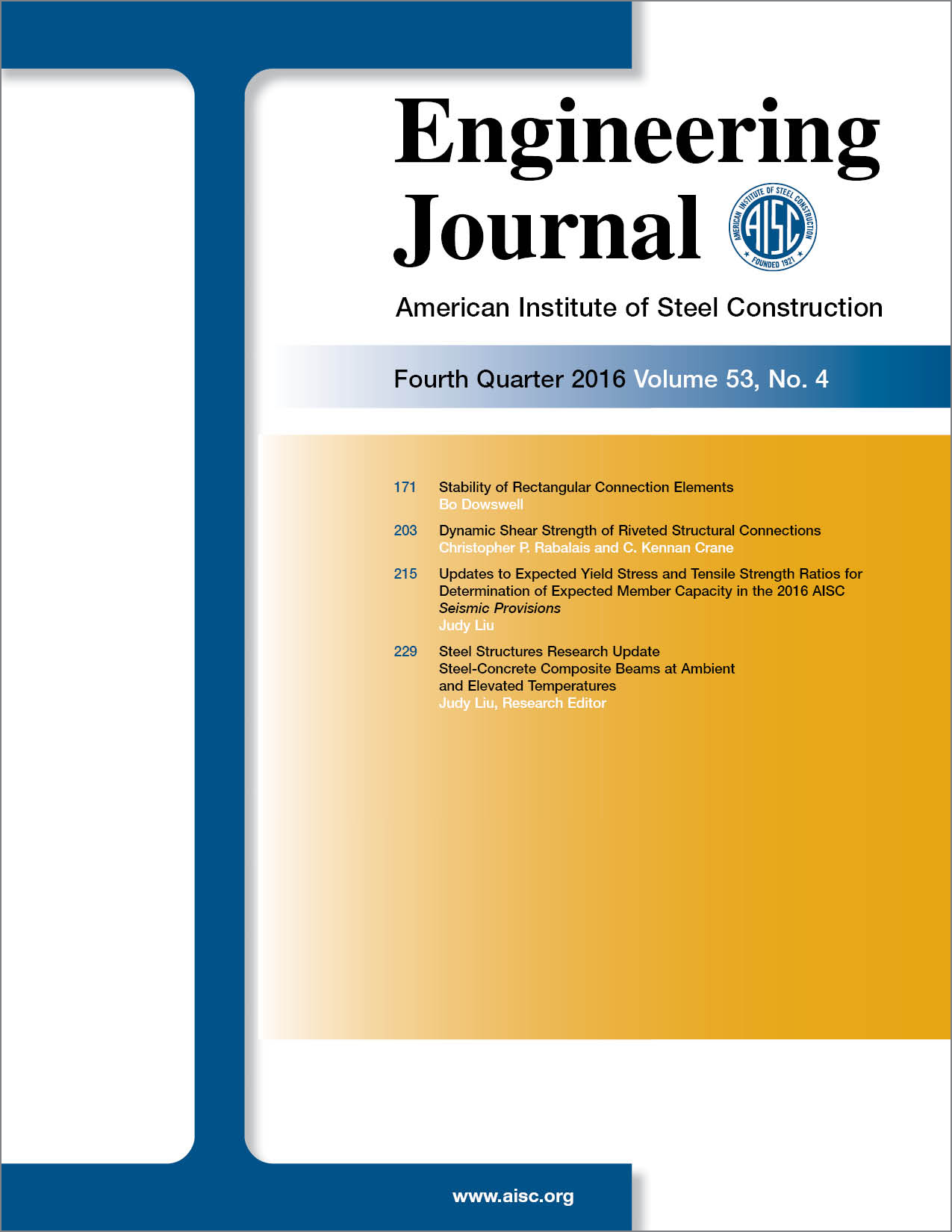Dynamic Shear Strength of Riveted Structural Connections
DOI:
https://doi.org/10.62913/engj.v53i4.1105Keywords:
rivet, shear strength, dynamic loading, quasi-static loading, dynamic increase factorAbstract
Riveted lap-spliced specimens were tested to observe how the fasteners’ shear strengths were affected by joint configuration, number of shear planes, and loading type. A 200,000-lbf-capacity dynamic loader was used to fail the specimens under a monotonic dynamic or monotonic quasi-static load. The test data were normalized by the number of shear planes loaded in each test and estimated ultimate tensile strength of the driven rivet. A statistical analysis was conducted to determine the significant factors affecting the fastener shear strength. Conclusions from the analyses indicated that the loading type has the most significant effect on shear capacity, resulting in a dynamic increase factor of 1.72 relative to the rivet’s quasi-static shear capacity.

